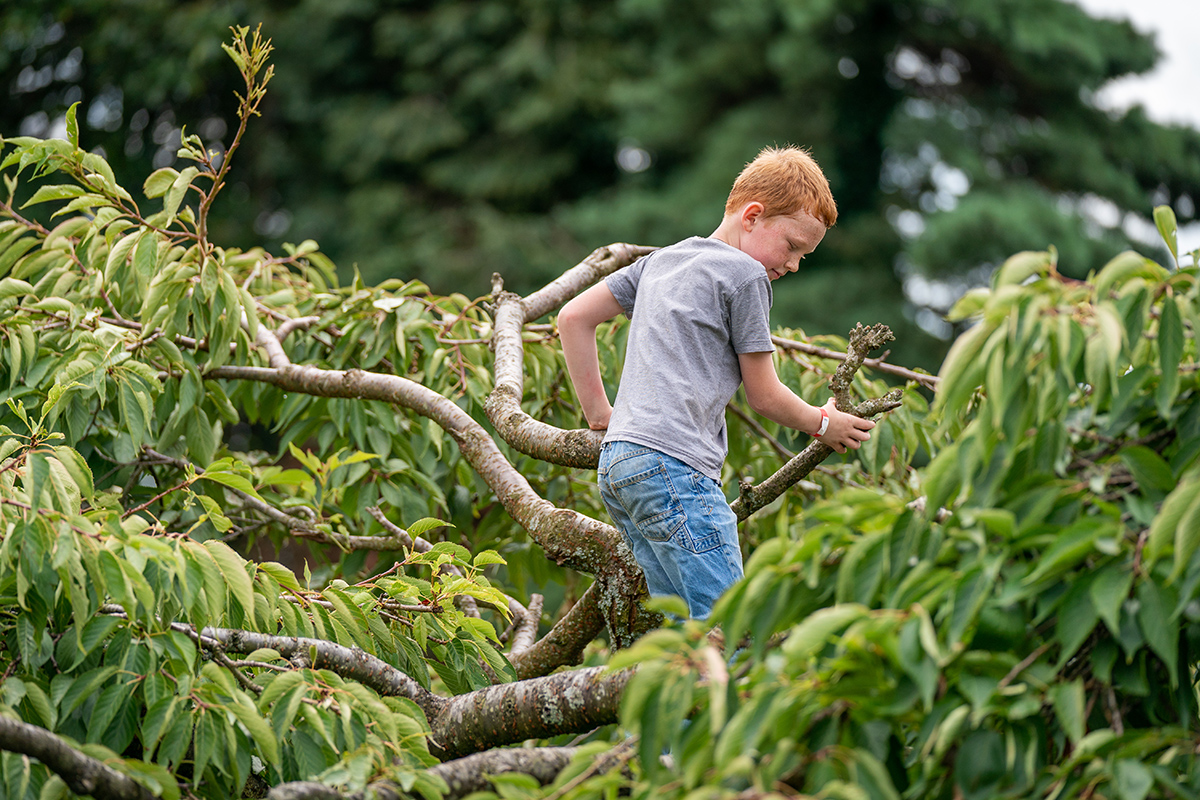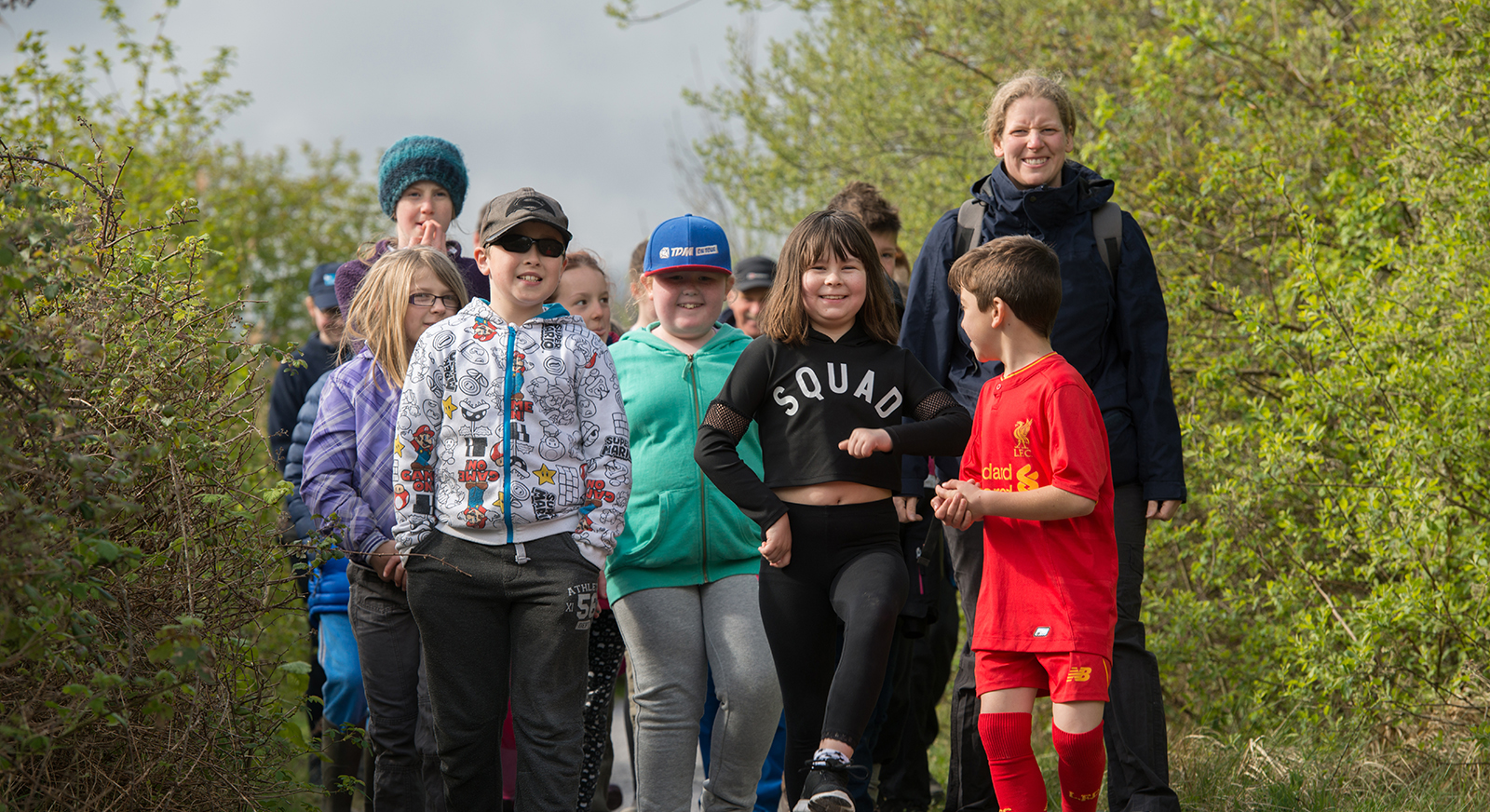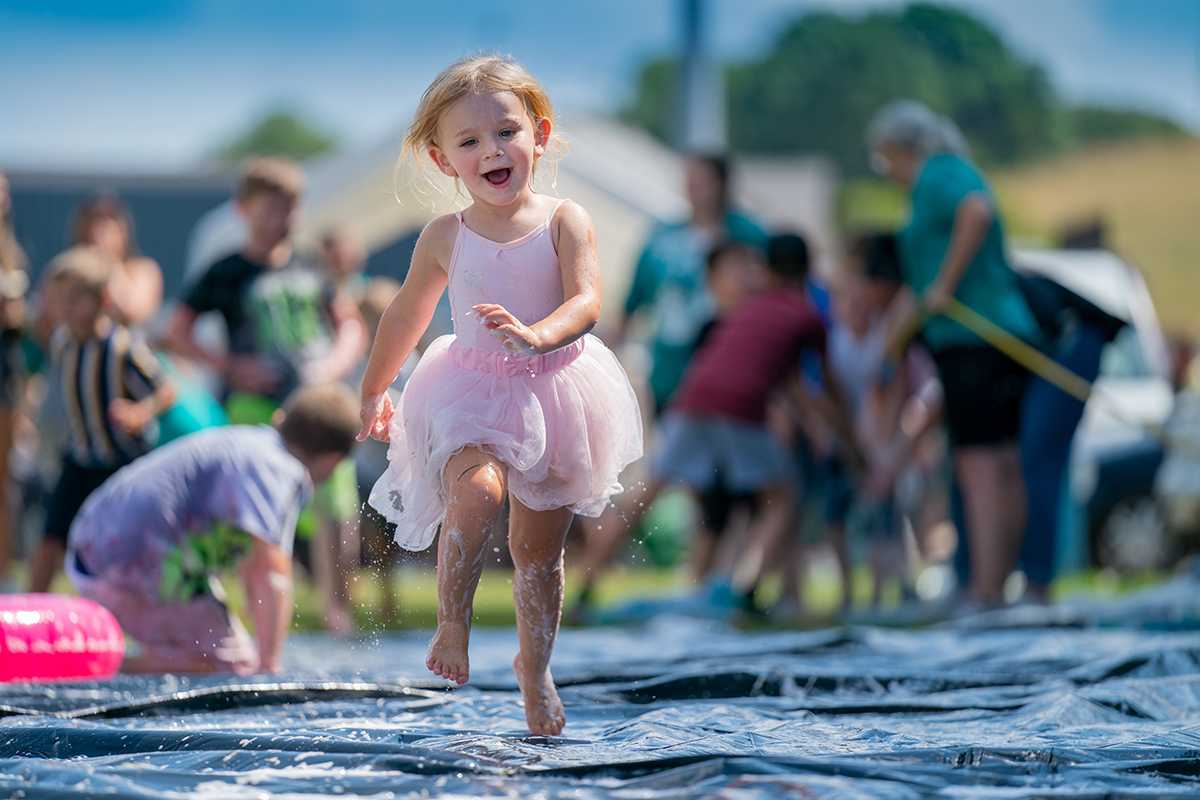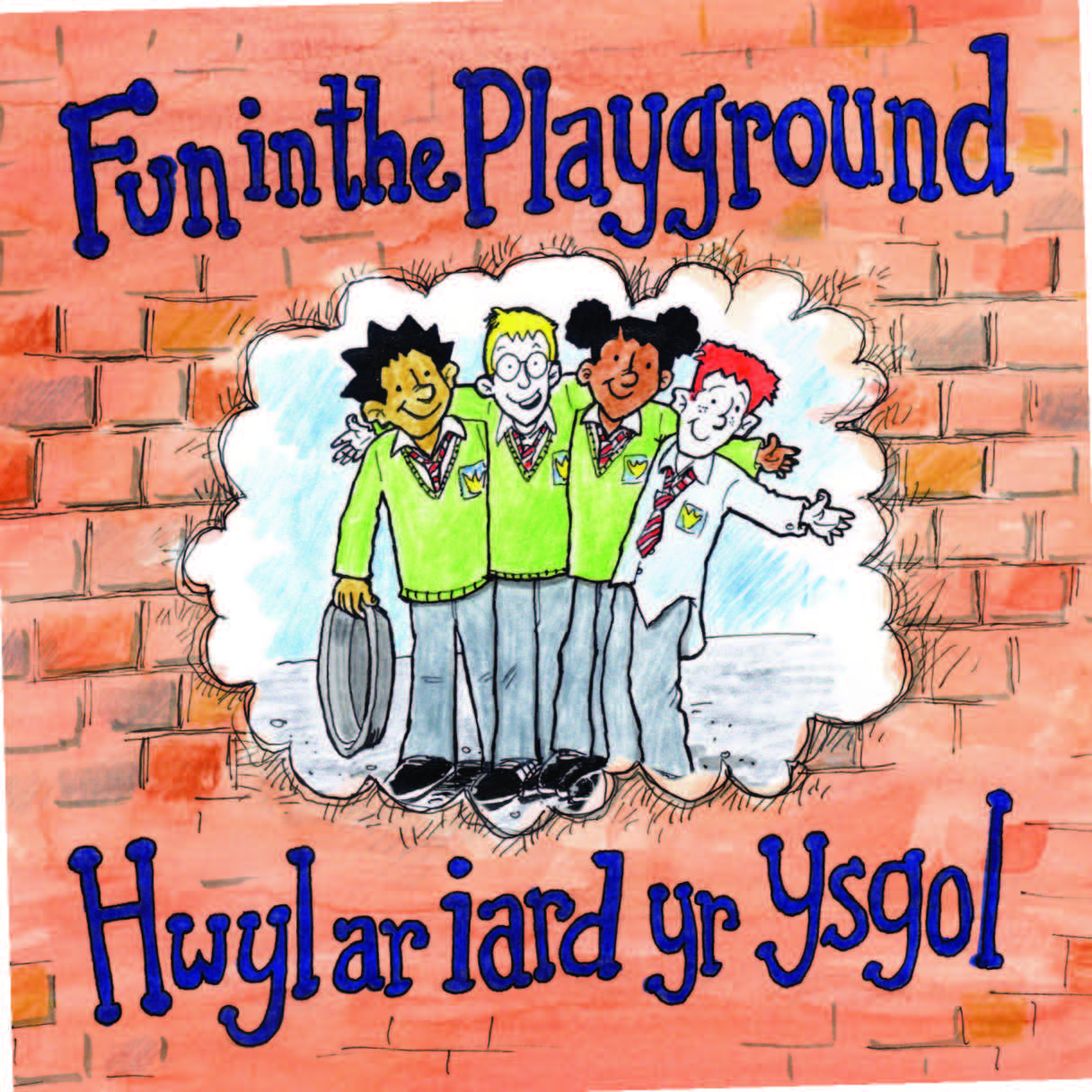Top tips for playing in and enjoying nature with children of all ages
Going outdoors and enjoying nature is vitally important for children of all ages. From exploring and finding out about how the world works in the early years, to soaking up the stress-soothing power of nature as teenagers – creating opportunities for your child to play in and connect with the natural world can help sustain a happy and healthy childhood.
Young children love to play and explore
In the early years, playing in nature is all about simple interactions that help children get familiar with the world around them. Take your children out and let them explore, feel the grass under their feet, jump in a puddle, touch the bark of trees, and hear the sounds of birds. Encourage them to play with natural materials. For example, a stick can turn into a magical wand or a daring sword in the world of make-believe. This helps develop their imagination, creativity, movement and senses.
Different natural environments offer different experiences
Different environments present unique, playful opportunities. Take children to the beach and let them play in the sand, splash in the water, or build sandcastles and watch how the waves wash them away. If you're near a forest, a simple walk can turn into a mini adventure. Try spotting different types of trees, animals or insects. An urban canal or river walk can also be exciting. Watch the ducks or the boats and discuss how water flows from higher to lower places.
Benefits of nature to older children
Older children may need more encouragement to play outdoors, but there are lots of fun ways they can enjoy nature with a little prompting. Often, they are drawn to more challenging play activities that test their abilities. For example, setting up a tent during a camping trip can provide a fun way to challenge your older child, develop their problem-solving skills and help them build confidence.
Older children also like to hang out with friends and friendship groups. Encouraging them to take part in playful outdoor activities with others can be a great way to motivate them to spend time in nature. Go on a forest walk and let older children choose the route, build dens, forage, and climb trees. Challenge them with map activities, such as geocaching or orienteering.
Spending time in nature can also provide a peaceful retreat from the hectic daily routines and the pressures of school. Being in the outdoors can help teenagers de-stress and relax, improving their mental health. Research has shown that spending time in nature can lead to improved mood, better concentration, and even enhance creativity.
There’s no bad weather – just choose the right clothing
Rain, wind and cold temperatures can be seen as a barrier to going outside and exploring nature. However, often it’s us adults who find bad weather more off-putting. Young children are drawn to wet, messy play like splashing in puddles and making mud pies. Even teenagers are known to hang out in the rain. Seeing weather in action is also a great way to develop children’s understanding of nature.
Wellies, waterproofs, warm layers and above all, a positive attitude to going outside can make the soggiest nature trip a worthwhile experience.
Our top ideas for playing in nature
Here are some playful, practical ideas for making your nature trips fun and engaging.
- Nature scavenger hunt
- Outdoor picnics
- Bird watching
- Stargazing
- Make crafts using natural elements, such as sticks and leaves
- Making sandcastles and mud pies
- Tree climbing
- Camping in the country, by the beach… or even in your garden
- Explore rockpools at the seaside
- Hide and seek in a forest.
Remember, the aim is to get children of all ages out into nature, playing and having fun. You don't need to plan every detail – often, the best playing comes from being spontaneous. So, put on your boots, step out, and let your children's curiosity guide the way!













